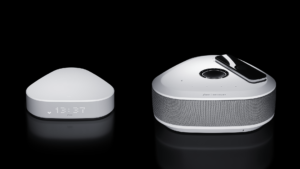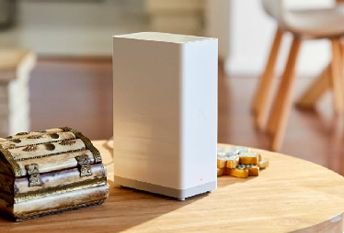Article
Orange adds smart speaker to control TV | Advanced Television
My Comments
Some European companies are working on their own voice-driven assistant platforms. At the moment, Movistar and Free have platforms that are part of their triple-play set-top-box services while the BMW Group are working towards one for the automotive context.
But Orange who have a foothold in France and Spain as far as multiple-play telecoms services are concerned are intending to release a voice-driven smart speaker known as Djingo. It is an alliance between themselves and Deutsche Telekom but will integrate Amazon Alexa technology. The French will benefit from Djingo in the European Spring of 2019 while the Spanish will benefit later in the year.
On this site, I have called out for the European tech firms to work towards one or more highly-capable voice-driven assistant platform that can effectively compete with Alexa, Cortana, Google Assistant and Siri.
It is also about having the European voice-driven assistant platforms work towards European values such as a competitive market, end-user privacy and service transparency, including having the data kept on European soil.
But the problem with Orange’s and Free’s deployment is that they are implementing Amazon’s technology rather than creating their own technology. This may be to avoid the so-called “Video 2000” problem where Philips and Grundig developed a highly-capable videocassette platform. But this platform, only adopted by some European names, didn’t succeed due to the popularity of the affordable VHS platform. In this case, most of the videocassette recorders based on the Video 2000 platform were sold in to the European markets and most of that platform’s marketing was focused within Europe.
This is compared to a large number of commercial passenger airlines maintaining the European-built Airbus aircraft in their fleet alongside American-built Boeing aircraft.
If a European voice-driven assistant platform is to succeed, it has to be offered around the work as a viable competitor to what Silicon Valley offers but with the values Europeans cherish. This is because there are consumers, service providers and enterprises who also underscore these values and want to benefit from AI-driven voice assistant software.
As I have said before, the European Commission could encourage the development of European-based IT that honours the European values and market it around the world. This is rather than always engaging in court battles and antitrust investigations to deal with Silicon Valley’s market dominance.



